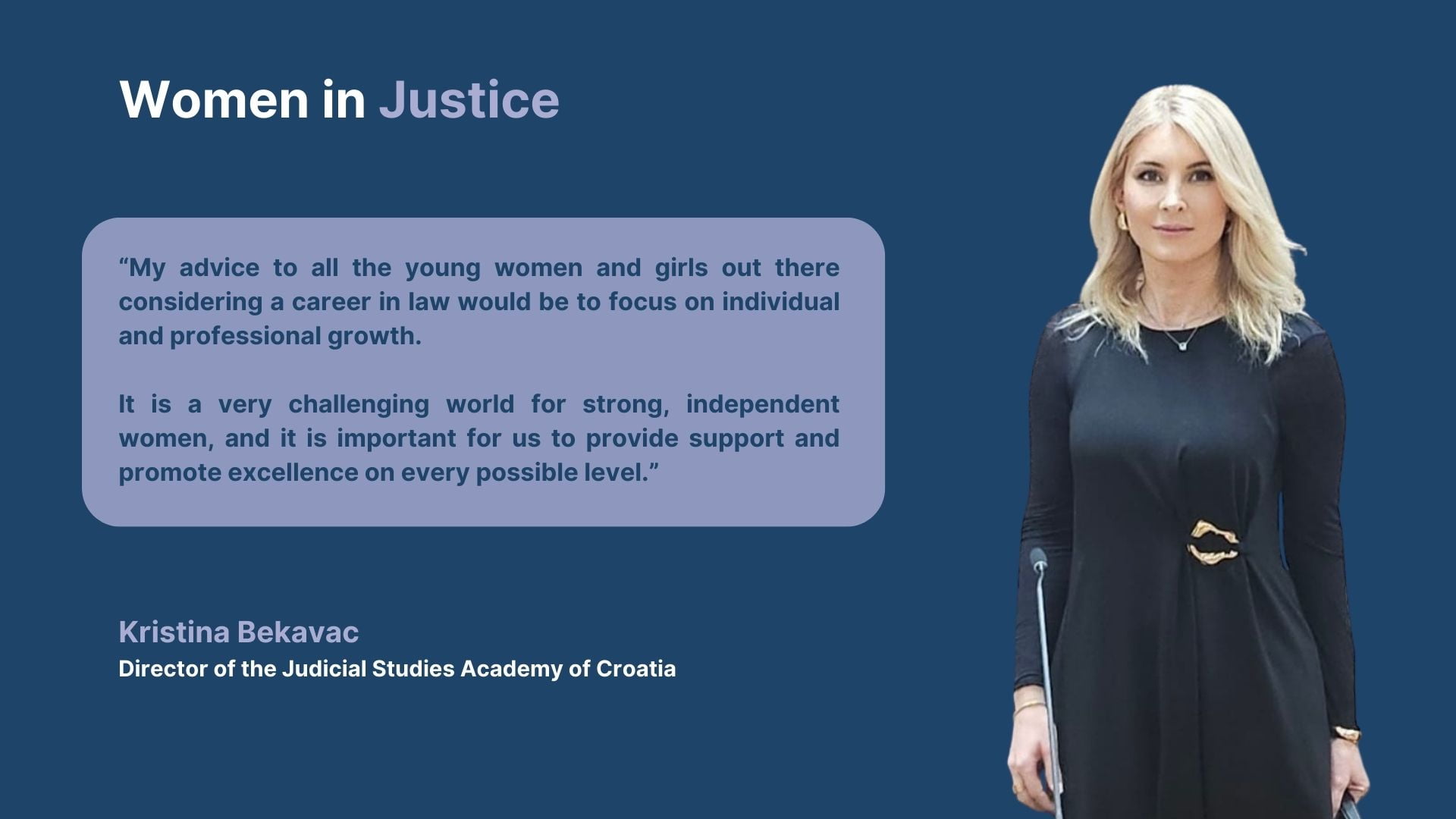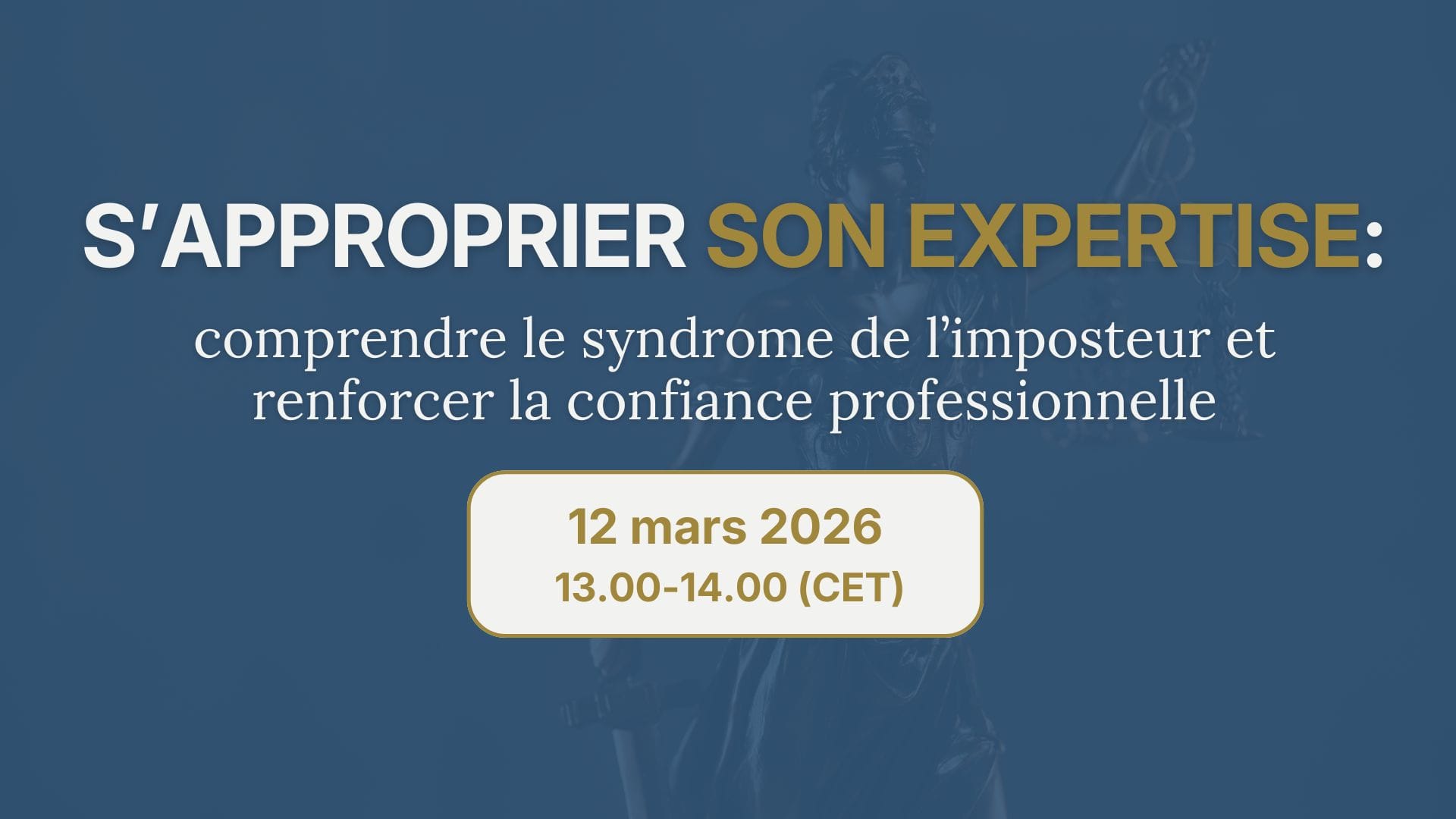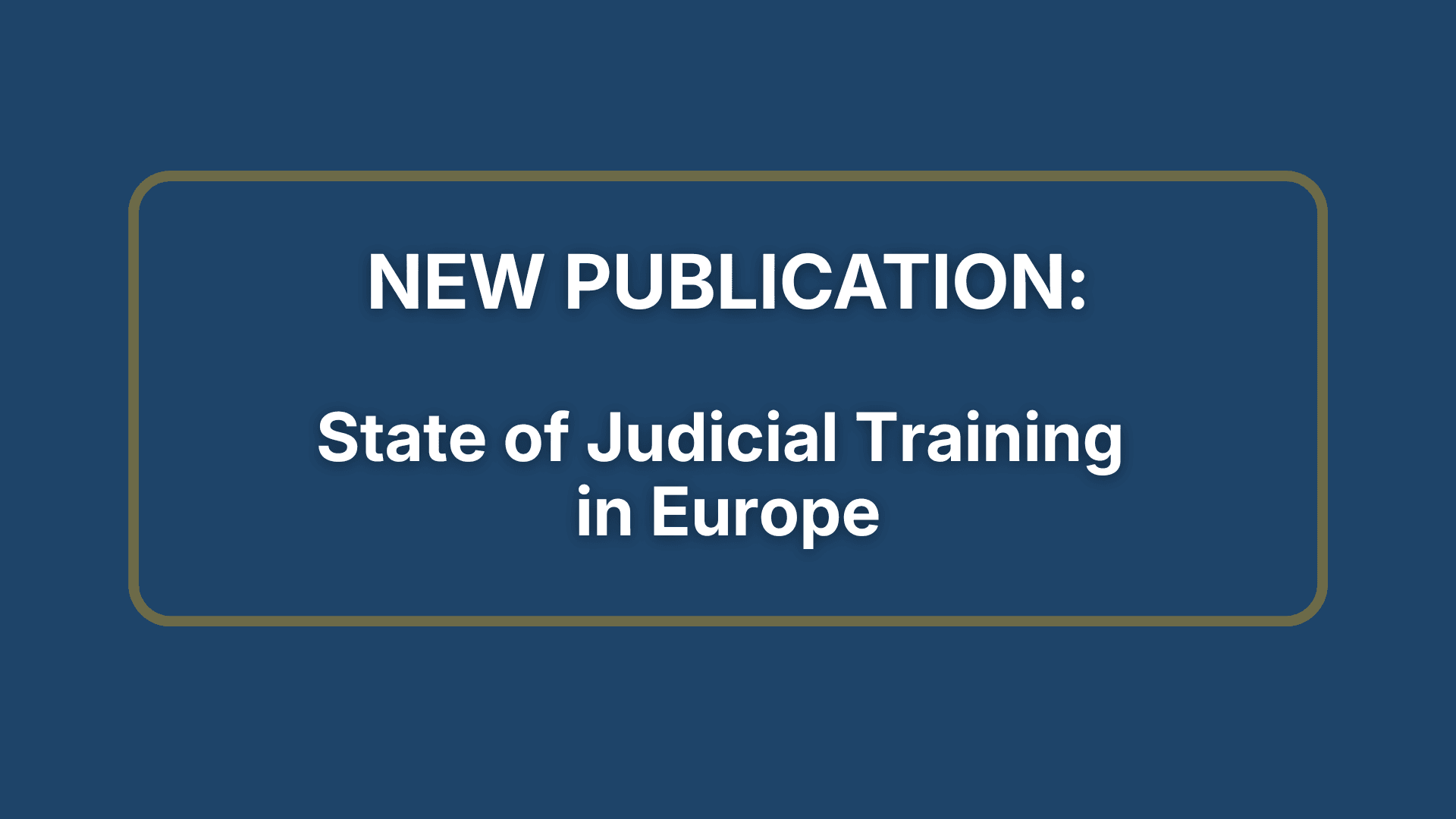Kristina Bekavac, Director of the Judicial Academy in Croatia, leads one of the key institutions responsible for training and developing future justice professionals in Croatia. In her interview, she reflects on her institution’s role in fostering gender equality within the judiciary, while emphasizing the significant contributions of women in Croatian’s legal system.
This interview series, launched in connection with the International Day of the Girl Child, highlights some of the inspiring women leaders within our Network.
As the Director of the Judicial Academy in Croatia, in your view, what is the role of judicial training institutions in shaping the future of the judiciary, particularly in promoting gender equality and diversity within the profession?
Judicial training is an essential practice in shaping the future of the judicial system. The Croatian Judicial Academy provides initial training for Court and State Attorney Advisors, who aspire to become Judges or Deputy State Attorneys.
Both our initial and continuous judicial training programmes promote gender equality and diversity through gender-focused workshops and topics. It is, however, important to stress that women constitute a significant share in the total number of judicial officials in Croatia, thus strengthening their position and voice as an important part of the Croatian judiciary.
And how do you see the role of women evolving in the legal profession, and what changes would you like to see in the future?
Women continue to be a very significant and very important part of the Croatian judiciary, which is demonstrated by the number of women participating in initial judicial training programmes as well as in lifelong learning training programmes our institution provides.
Women in Croatia are prevalent at Judge and State Attorney positions – this is a trend I will be very happy to see and promote in the future.
The Croatian Judicial Academy is a valued Member of the European Judicial Training Network (EJTN). How does this partnership enhance the training and professional development of Croatian judges and prosecutors, and in your view what unique perspectives do Croatian trainees bring to the wider European judicial community?
Our institution’s partnership with EJTN helps us provide added value for the professional development of the members of the Croatian judiciary. Important insights and experience gained through study and exchange programmes enable participants to disseminate European values promoted through EJTN’s activities at a national level.
For young women aspiring to enter the judiciary or legal professions, what advice would you offer?
My advice to all the young women and girls out there considering a career in law would be to focus on individual and professional growth. It is a very challenging world for strong, independent women, and it is important for us to provide support and promote excellence on every possible level.
For more information on our Member, the Judicial Academy in Croatia, you can visit their website.




